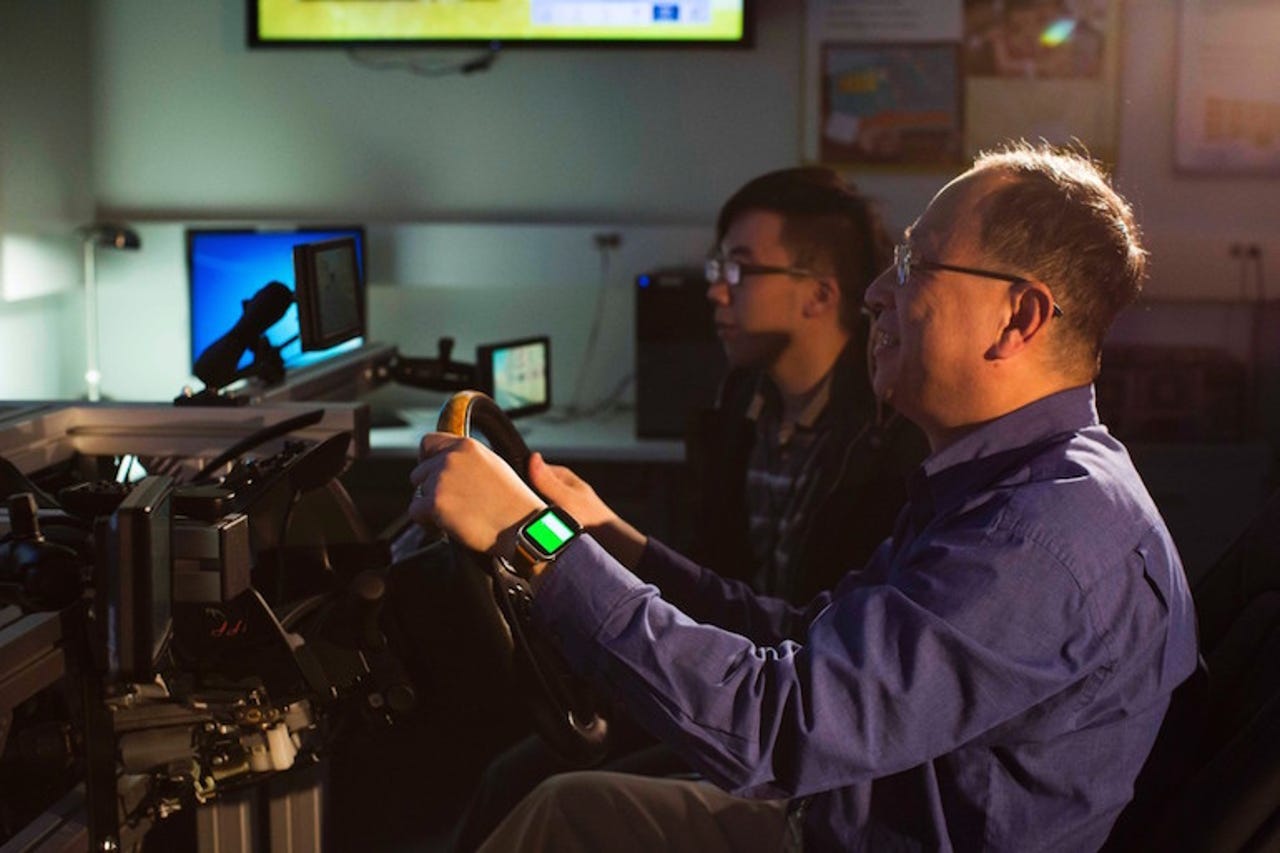Driving stressed or sleepy? Soon your smartwatch will be able to warn your car


Engineers at Ford's wearables lab.
Ford is working on connecting smartwatches and fitness bands to its in-car systems to make driving safer.
The motor giant has researchers at its Dearborn, Michigan research center working on how to link health information to in-vehicle technologies.
As more consumers embrace smartwatches, smart glasses and fitness bands, Ford wants to develop applications that work with those devices to improve driver awareness, said Gary Strumolo, Ford's global manager for vehicle design and infotronics.
"Wearable technology integrated with the vehicle allows for more accurate biometric data to stream continuously and alert active driver-assist systems to become more sensitive if the driver shows signs of compromised health or awareness," said Strumolo.
For example, a car's lane-keeping technology could become more sensitive if the data from the smartwatch suggests the driver didn't get enough sleep the previous night. Or, if a driver's heart rate increases as traffic intensifies -- suggesting they are becoming stressed -- the vehicle's adaptive cruise control or could automatically increase the distance between vehicles "giving the driver some breathing room".
The ability to measure wakefulness and health data -- including blood pressure, blood glucose and heart rate -- via wearable technology also could benefit semi-autonomous driving features.
Ford said the wearables lab is examining ways to signal a driver who is using semi-autonomous driving that they need to take driving control back from the vehicle. If there were road construction or an accident ahead, situations requiring a human at the wheel, the technology could send a wrist vibration or chimes, or activate flashing lights on the dashboard.
Researchers are testing voice control for the smartwatch version of MyFord Mobile, which allows Ford drivers to remotely start, lock, unlock and locate their vehicle via their watch app.
Smartwatches, in particular, have been slow to take off, largely because of the lack of must-have applications. However, if experiments like those by Ford turn into widely-available products this could help give consumers a reason to buy into wearables.
Another customer-focused experiment the lab is working on involves augmented-reality optics, or smart glasses, and the dealership experience. Customers would wear smart glasses as they guide themselves through a showroom, seeing additional information about vehicles they're interested in: looking through glasses could offer a wide range of features from technical specifications to a virtual test drive.
More on the future of driving
- Ford: Our new app will be like iTunes, but for cars
- Ford's master plan to enter transportation services rests on software prowess
- Toyota leads automaker pack adopting Ford's open source entertainment software
- Alexa, is my garage door closed? Ford wants your car to talk to Amazon Echo
- Ford in talks to build a Google car for ride-sharing